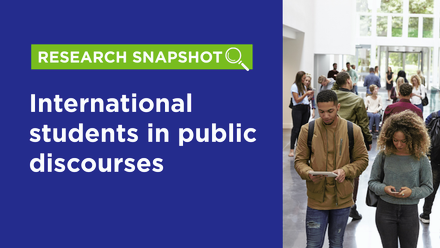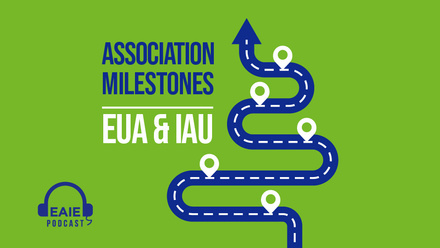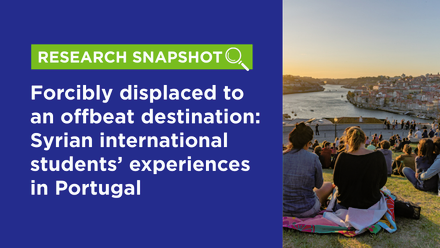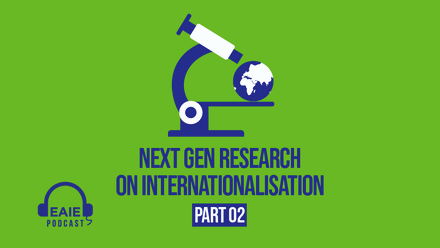The EAIE Barometer – professionals' perspectives on internationalisation
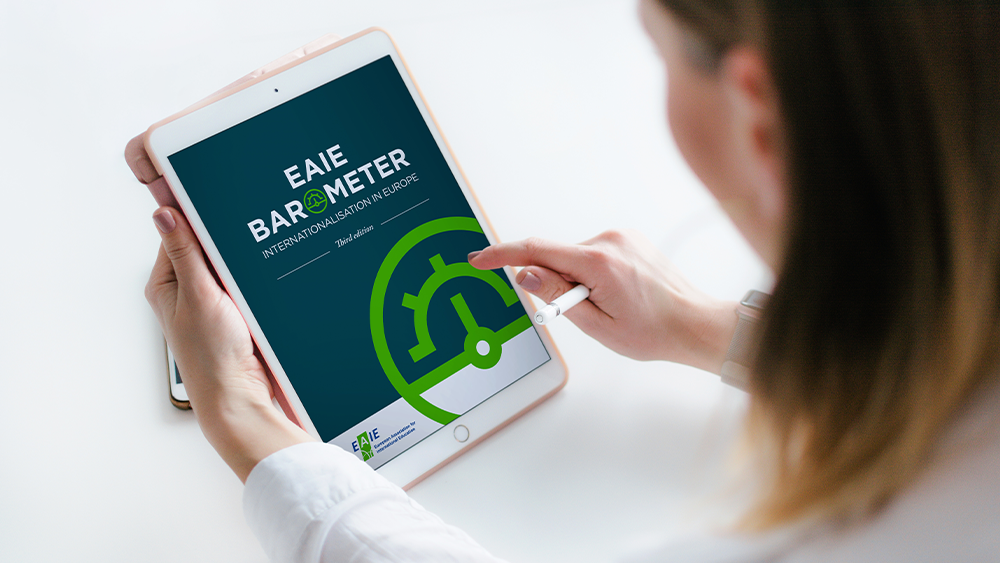
The EAIE published the latest instalment of the EAIE Barometer series, the EAIE Barometer (third edition). The first report in the series was published almost a decade ago, in 2015, and was the largest and most geographically representative study of its kind ever undertaken in Europe at the time. This 2024 publication once again serves as a valuable resource for the sector, as it offers up a remarkably comprehensive set of insights into the state of internationalisation in European higher education today, specifically through the eyes of the professionals directly involved in carrying out this work. In doing so, it provides important indications of the health and vitality of the sector across the European Higher Education Area (EHEA) at a moment of significant challenge, opportunity and change.
A lot has happened in Europe and the world as a whole since the publication of the previous edition of the EAIE Barometer in 2018. Although initially planned for 2021, the third instance of this large and important research project was delayed by the unprecedented uncertainty and turmoil of the pandemic period. Now, in 2024, in the face of rapid and constant change, it is as important as ever to continue mapping the landscape of internationalisation from the perspective of professionals working directly on this process at HEIs and other organisations across Europe.
Respondents
The survey was available for completion from 28 September to 28 November 2023 and open to anyone working in the EHEA whose work at the time of survey completion focused on internationalisation in higher education as either a primary or partial aspect of their work. The survey generated a total of 2817 individual responses from 46 EHEA countries, slightly more than both the 2015 and 2018 iterations of the survey. The majority (68%) of respondents are individuals for whom internationalisation is a primary (rather than a partial) focus of their work. While based at institutions of various types and sizes, most (55%) report working at a research university, and 77% indicate that their employer is a public institution or organisation. Respondent profiles cover a variety of distinct professional positions across nearly a dozen different functional areas and represent the full range of career tenure, from fewer than 2 years of experience to 15 or more years in the field.
Some high-level findings
The full EAIE Barometer (third edition) report provides detailed insight into respondents' perceptions in 5 key areas:
1. Their own professional roles in international higher education
At an individual level, professionals in international higher education across the EHEA appear to be largely satisfied with their work. However, as a group, they are less satisfied with the salary/compensation they receive than with the personal satisfaction they derive. It is also interesting to see that many respondents' roles and responsibilities have changed over the past few years, with an appetite for training and professional development evident across the board.
2. Their institution's or organisation's structure and strategy for internationalisation, goals and stakeholder influences
Respondents are largely confident in the achievability of their institution's or organisation's internationalisation goals. However, there do seem to be some concerns about how responsibilities for internationalisation are organised, and confidence in leadership is lacking in some places. Meanwhile, the perceived influence of national and European-level actors remains significant but may have waned over the last decade.
3. Budgets for internationalisation
Respondents are fairly satisfied with the budgets they are responsible for, although there are variations across regions regarding perceptions of the year-on-year stability of budgets. Some variation across regions was visible. Interestingly, when queried as to what respondents would do if presented with a significant increase in budget, the largest percentage indicated that they would focus on adding additional staff or providing more opportunities for existing staff, including training, higher pay/compensation, and other activities geared towards retention and general "staff happiness".
4. The impact of internationalisation
Respondents were also asked to answer questions on the current debate at their institutions or organisations when it comes to demonstrating the impact of internationalisation. Interestingly, professionals in the field perceive that their institutions are as focused on demonstrating the impact of internationalisation via rankings performance as they are with demonstrating student learning outcomes or research activity.
5. How their institutions are performing in relation to specific topics of current interest in the field
Institutions are, on the whole, perceived to be making progress over the last year in regard to a range of topics currently of high interest to respondents and the wider field. However, additional attention to key activities and priority issues is still required. These topics included, amongst others, environmental sustainability and climate action, student/staff wellbeing, digitalisation of administrative tasks and crisis preparedness/management. Notably, the data highlights the ongoing need for the sector to attend simultaneously to a multitude of activities and considerations. It also raises important questions about the extent to which, and in what ways, different stakeholders and national and European-level initiatives will affect the different aspects of the work of IHE professionals across the EHEA.
Overall, the current EAIE Barometer survey exercise provides clear indications of positivity, change, and meaningful work ahead in a variety of areas. Hopefully, the insights gained from this work will feed usefully into discussions at national and institutional/organisational levels about the many challenges and opportunities ahead for internationalisation in higher education across Europe.
Interested to learn more? You can find the full EAIE Barometer (third edition) research or download the Executive Summary.


